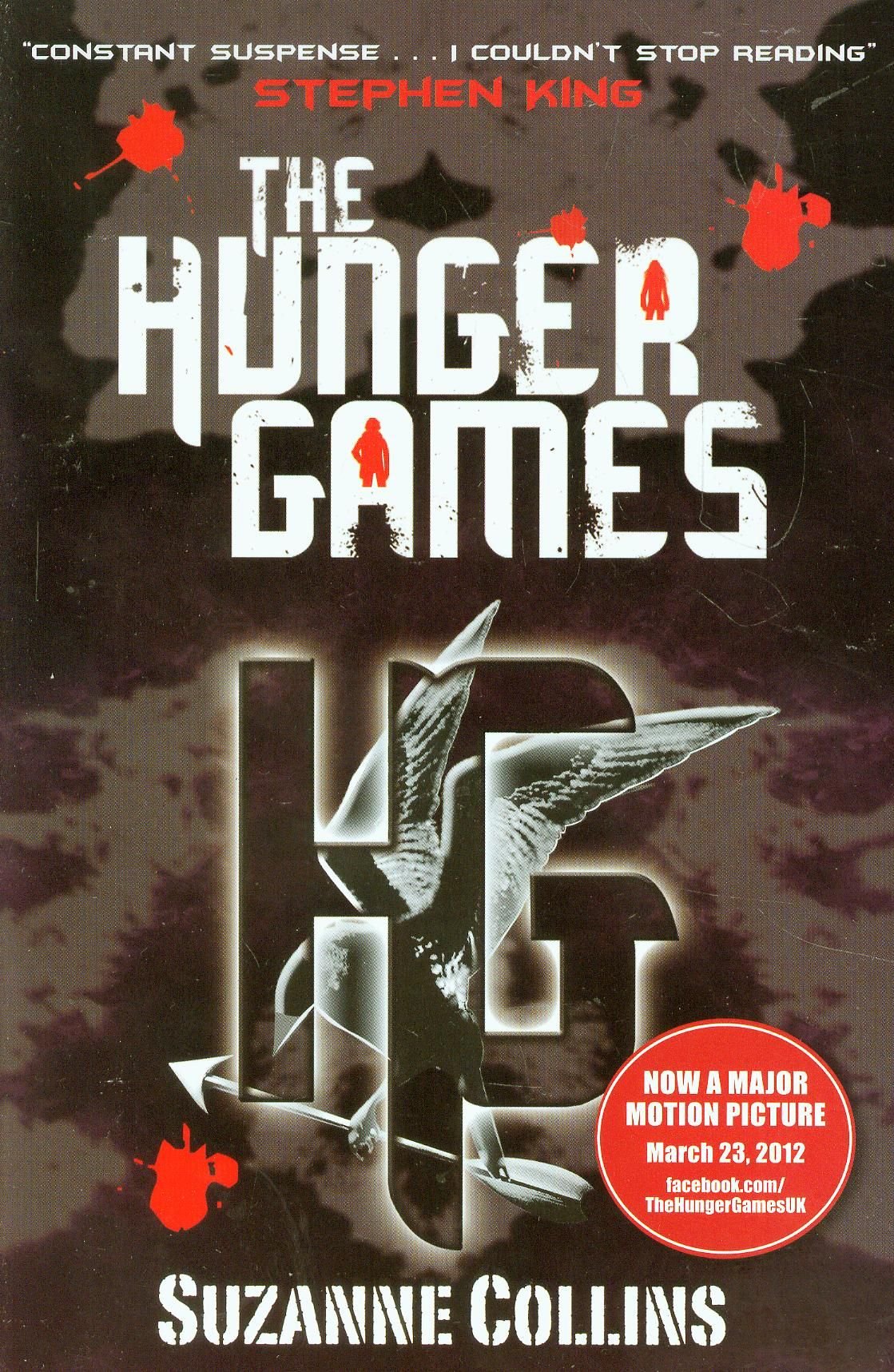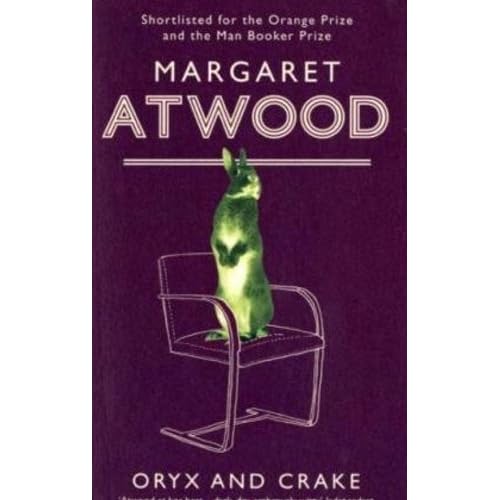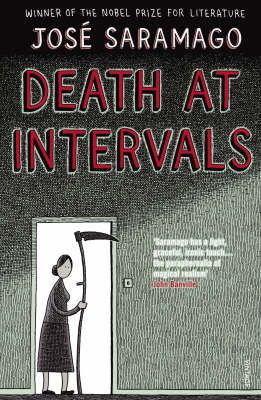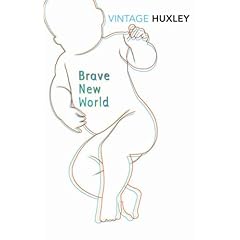 Oh sweet temptation, I cave to thee ever so oft', and yet, how scarcely do I regret it. A tinge of embarrassment, possibly, and an element of judging the fool that wears my shoes does creep in, but that's alright. That's alright.
This book has caught my attention numerous times since it hit the stands a couple of years ago, and each time, I picked it up, put it back on the shelf and moved on. About three weeks back though, desperate to try and find something that would complete my three-for-two purchase at Waterstones, this was picked up. Allow me a moment of sentimentality, for it's a dilemma I might never face again, with the three-for-two scheme coming to a close.
Oh sweet temptation, I cave to thee ever so oft', and yet, how scarcely do I regret it. A tinge of embarrassment, possibly, and an element of judging the fool that wears my shoes does creep in, but that's alright. That's alright.
This book has caught my attention numerous times since it hit the stands a couple of years ago, and each time, I picked it up, put it back on the shelf and moved on. About three weeks back though, desperate to try and find something that would complete my three-for-two purchase at Waterstones, this was picked up. Allow me a moment of sentimentality, for it's a dilemma I might never face again, with the three-for-two scheme coming to a close.
What do you say about a book where the writing is ordinary at best, the plot supposedly unoriginal (inspired by the Japanese novel, Battle Royale), and a book which is aimed at young adults about survival?
Kill or be killed. "Last man standing" wins. Innocent people die. Innocent children die. It's a far cry from the days of Nancy Drew and The Hardy Boys, where justice was always served; from the days of Sweet Valley which was just high school fluff; from Roald Dahl where the villainous characters always got what was coming to them as they were purely outsmarted or outwitted by brilliant children.
Maybe you put that into perspective, with the Harry Potter books, where the innocent died at the hands of Lord Voldemort, and it was left to The Boy That Lived and his friends to avenge their family and friends, and protect the world of wizardry from the Dark Lord and Death Eaters.
In a futuristic society, North America has been replaced by the twelve districts of Panem. Every year, two teenagers (a boy and a girl) from each district are chosen to participate in a reality TV series (will we never escape those?): The Hunger Games. The objective of the Games is simple: the last teenager still standing wins, and the way to ensure victory and your own survival is to kill others your own age, who haven't committed any crimes, who've done nothing wrong.
In District 12, the poorest of the Districts, Katniss' younger sister is called upon to represent her district. Katniss immediately volunteers in her place, protective of her younger sister. The other representative from the district is Petra - the baker's son. The two go to the Capitol, show-off their skills, eat more than they've ever eaten and see more luxury than they've ever seen. They prepare for the Games, honing their existing skills, and trying to build new ones, as they meet the other tributes - the other representatives.
And then the Games begin.
People from the different districts group together, and hunt in packs, and like in any other dystopia, it's cringeworthy to see how naturally people do anything to survive, even though it's the monsters at the Capitol who have ensured this lunacy occurs year after year, as a punishment for a rebellion that occurred years ago. The book is gripping, as everyone wants to the girl who volunteered to take her younger sister's place to emerge victorious. It's not that the others should die (although a couple of them are truly obnoxious), but, the rules are simple.
Obviously, as the case is, with most fiction (young adult or otherwise), there's a parallel love story, as all the tributes battle for survival and the pride that comes with emerging victorious. It's these parallel - sometimes unnecessary - love stories that make these books slightly trying. Same thing with Harry Potter and the Harry-Ginny, Hermione-Ron thing - what was the point? What did it accomplish? Such a tame ending to the seventh book.
I digress.
There's a love story, here as well, but possibly, what Collins has done is, made this love story the base for the second and third books of the trilogy (which I have also finished and will pen down my thoughts on, in due course); the base for the Capitol's anger; and the base for the events that follow - but no spoilers here. Not yet anyway.
I'd recommend this book, in all its entertaining glory. It's not great reading, by any stretch of the imagination, but a book this entertaining and gripping deserves a read.
 It was in
It was in 
 Death At Intervals (also published as Death With Interruptions) is an extremely surreal book by the Nobel Laureate, José Saramago. In a country (not necessarily futuristic), people have stopped dying one new year's day, in spite of illness, accidents and life in general.
The different strata of society react differently: people are initially joyous as they contemplate immortality; the religious people and the philosophers try debating it out - without death, what is the point of religion - and, the politicians, who try and figure out the socio-economic repercussions.
Death At Intervals (also published as Death With Interruptions) is an extremely surreal book by the Nobel Laureate, José Saramago. In a country (not necessarily futuristic), people have stopped dying one new year's day, in spite of illness, accidents and life in general.
The different strata of society react differently: people are initially joyous as they contemplate immortality; the religious people and the philosophers try debating it out - without death, what is the point of religion - and, the politicians, who try and figure out the socio-economic repercussions. In January 2009, I was introduced to the wonderful world of David Mitchell by a friend, who lent me the surreal
In January 2009, I was introduced to the wonderful world of David Mitchell by a friend, who lent me the surreal  Background:
While this month, my blog entries seem to be focused a lot on the
Background:
While this month, my blog entries seem to be focused a lot on the  I'm still playing catch-up on 13th June's
I'm still playing catch-up on 13th June's  An anthropomorphic anti-Soviet social satire, this book stirred up a fair bit of controversy, and initially, a multitude of publishers refused to print it, fearing the repercussions of the act.
The book focuses on the animals of Manor Farm, and how they go the full circle, from being owned by men and working for them, to being an animal democracy, and then the balance of power shifting again, to one of the species...
An anthropomorphic anti-Soviet social satire, this book stirred up a fair bit of controversy, and initially, a multitude of publishers refused to print it, fearing the repercussions of the act.
The book focuses on the animals of Manor Farm, and how they go the full circle, from being owned by men and working for them, to being an animal democracy, and then the balance of power shifting again, to one of the species... O my brothers, this book is real horrorshow. You must have slooshied about it, and in my opinion, it's a must read. Apologies for the nadsat, i.e. teenage Russian slang, but I think this is partly responsible for making this book just as good as it is (and I really can't rate it high enough). Initially, the book is challenging to read. The language is full of slang, that takes some time to get accustomed to. I was confused and felt that I really needed a dictionary (or, the book needed a glossary) to make some sense out of this book. However, within a couple of chapters, the slang started to make sense, and I just couldn't stop reading it, to see how it ends.
O my brothers, this book is real horrorshow. You must have slooshied about it, and in my opinion, it's a must read. Apologies for the nadsat, i.e. teenage Russian slang, but I think this is partly responsible for making this book just as good as it is (and I really can't rate it high enough). Initially, the book is challenging to read. The language is full of slang, that takes some time to get accustomed to. I was confused and felt that I really needed a dictionary (or, the book needed a glossary) to make some sense out of this book. However, within a couple of chapters, the slang started to make sense, and I just couldn't stop reading it, to see how it ends. A book set in the future, but has a title inspired by Shakepeare’s The Tempest, Brave New World details a dystopian society. However, if you’re expecting to see shades of Orwell’s 1984, you’re in for a surprise. On the other hand, there are some small comparisons that can be made with Bradbury’s Fahrenheit 451, another dystopian world, where literature is banned. Of course, this is where the similarity ends.
A book set in the future, but has a title inspired by Shakepeare’s The Tempest, Brave New World details a dystopian society. However, if you’re expecting to see shades of Orwell’s 1984, you’re in for a surprise. On the other hand, there are some small comparisons that can be made with Bradbury’s Fahrenheit 451, another dystopian world, where literature is banned. Of course, this is where the similarity ends. You have to love the name of the book. That was reason enough to pick it up! Androids, and electric sheep. What could possibly make more sense? Seriously, the name of the book intrigued me enough to pick it up, just to see how bizarre sci-fi could get. It’s not as bizarre as it sounds, if it helps...
You have to love the name of the book. That was reason enough to pick it up! Androids, and electric sheep. What could possibly make more sense? Seriously, the name of the book intrigued me enough to pick it up, just to see how bizarre sci-fi could get. It’s not as bizarre as it sounds, if it helps...